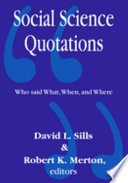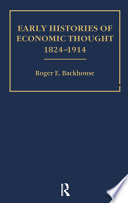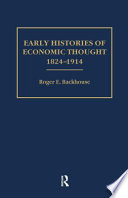 | William K. Tabb - Business & Economics - 1999 - 314 pages
...equity. In his great society, decent treatment of all members was the sign of civilized accumulation. No society can surely be flourishing and happy, of which the far greater part the members are poor and miserable. It is but equity, besides, that the whole body of the people, should... | |
 | Daniel Callahan - Health care reform - 1999 - 340 pages
...Smith himself once wrote, "No society can be flourishing or happy, of which the far greater part of its members are poor and miserable. It is but equity, besides, that they who feed, cloath [sic] and lodge the whole body of the people should have such a share of the produce of their... | |
 | Michael Perelman - Business & Economics - 2000 - 428 pages
.... But what improves the circumstances of the greater part can never be regarded as an inconveniency to the whole. No society can surely be flourishing...miserable. It is but equity, besides, that they who feed, cloath and lodge the whole body of the people, should have such a share of the produce of their own... | |
 | David L. Sills, Robert King Merton - Social Science - 2000 - 466 pages
...society. But what improves the circumstances of the greater part can never be regarded as an inconveniency to the whole. No society can surely be flourishing...greater part of the members are poor and miserable. The Wealth of Nations (1776) 1937:Book 1, chap. 8, 78-79. is The wages paid to journeymen and servants... | |
 | Lisa Rosner, John Theibault - History - 2000 - 478 pages
...the poor were living in too much luxury and that it made them unwilling to work. But Smith disagreed: "No society can surely be flourishing and happy, of...greater part of the members are poor and miserable." It was, in fact, absurd to think that people would be able to work more when subject to starvation and... | |
 | Nicholas Deakin - Philosophy - 2000 - 328 pages
...of economic development: the rate of economic progress depended on the level of saving, and if this the far greater part of the members are poor and miserable. It is but equity, besides, that they who feed, cloath and lodge the whole body of the people should have such a share of the produce of their own... | |
 | Charles Gide, Charles Rist - Business & Economics - 2000 - 728 pages
...regarded as an ineonvenieney to the whole. No soeiety ean surely be flourishing and happy, of whieh the far greater part of the members are poor and miserable. It is but equity, besides, that they who feed, 1 Marx speaks of Smith as the eeonomist who is the very epitome of the manufaeturing period. (Daa Kapit»i,... | |
 | Business & Economics - 2000 - 724 pages
...could hardly harm the whole. No society could be truly flourishing and happy with its laboring classes poor and miserable. " It is but equity, besides, that they who feed, cloath, and lodge the whole body of the people, should have such a share of the produce of their own... | |
 | Stephen Miller - Biography & Autobiography - 2001 - 226 pages
...same point in The Wealth of Nations. Speaking of the need to promote a progressive economy, he says: "No society can surely be flourishing and happy, of...which the far greater part of the members are poor and miserable."90 Johnson, then, belongs to the mainstream of Enlightenment thought in Britain and France... | |
 | David M. Levy - Business & Economics - 2001 - 340 pages
...society. But what improves the circumstances of the greater part can never be regarded as an inconveniency to the whole. No society can surely be flourishing and happy, of which the far greater parts of the members are poor and miserable. It is but equity, besides, that they who feed, cloath... | |
| |